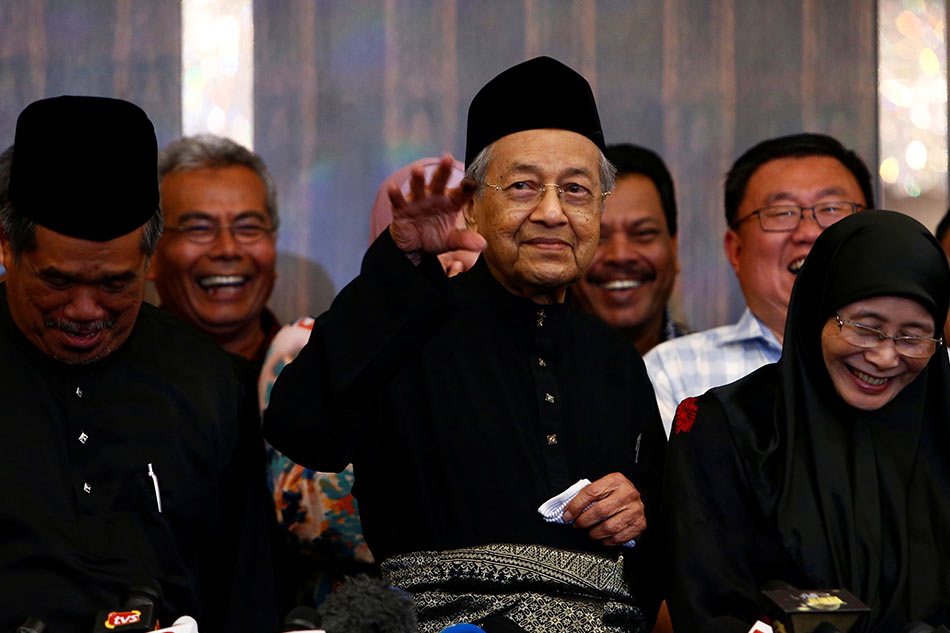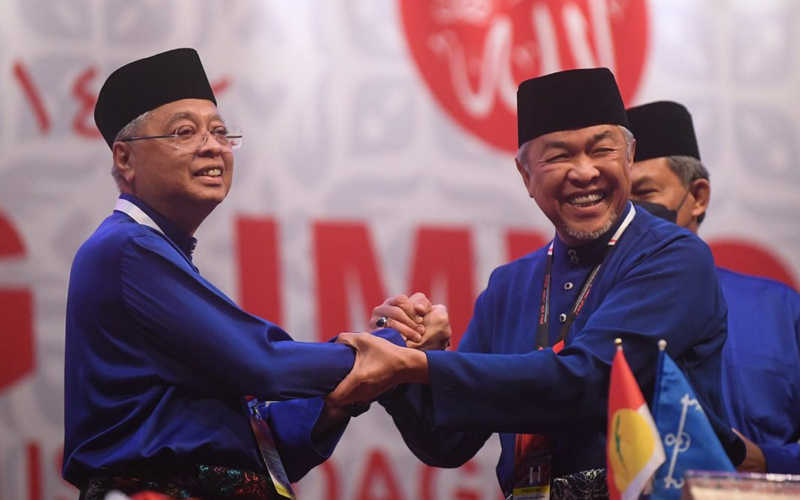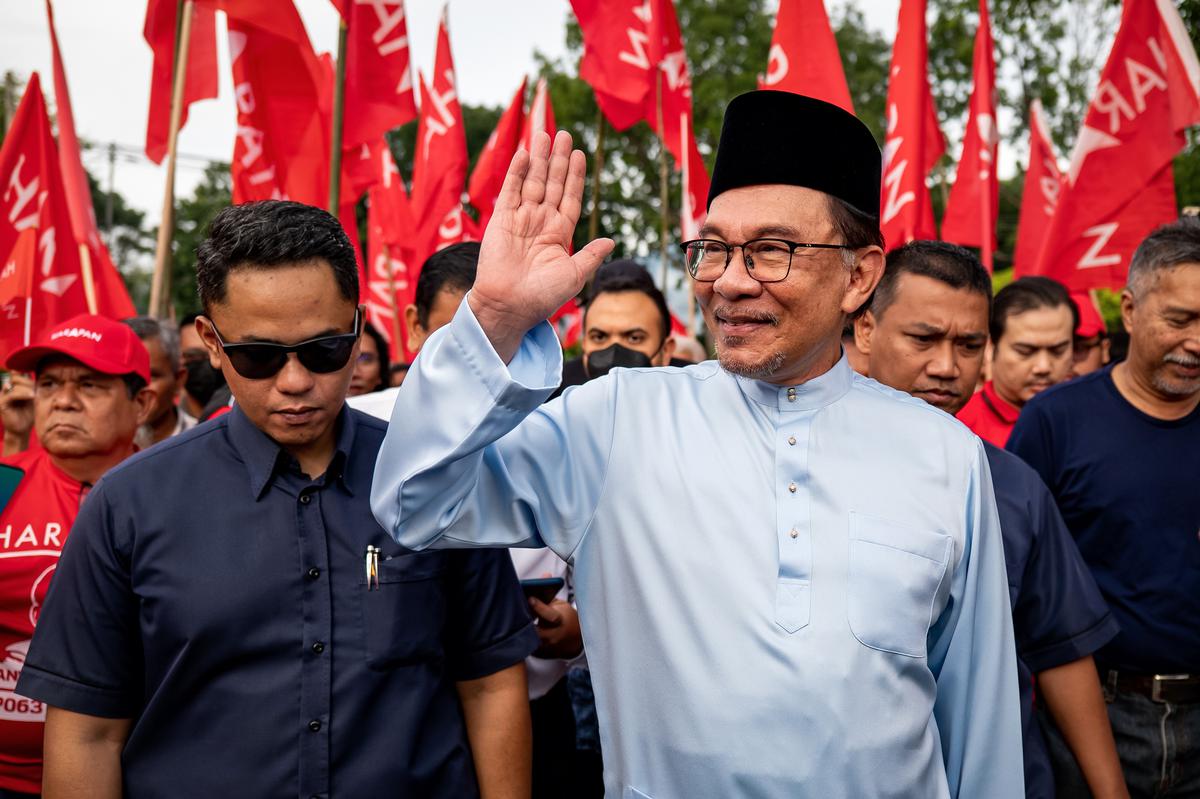At the heart of Malaysia's governance lies a distinctive fusion of authorities, where a federal parliamentary constitutional monarchy flourishes under the leadership of both the Yang di-Pertuan Agong, the esteemed Head of State, and the Prime Minister, the dynamic Head of Government. This dual leadership framework orchestrates a symphony of responsibilities, with the Prime Minister assuming a pivotal role in orchestrating the nation's course. Beyond being a figurehead, the Prime Minister of Malaysia shoulders a complex and diverse set of duties, embarking on a journey that involves guiding the government's course, safeguarding the welfare of citizens through sustainable economic growth and social initiatives, cultivating a steady political climate, and offering expert counsel to the Yang di-Pertuan Agong on pivotal governance matters. This harmonious interplay of executive leadership and constitutional obligations forms the very cornerstone of Malaysia's distinctive governance arrangement.
Tunku Abdul Rahman Putra Al-Haj (1957–1970): Founding Father and Architect of Independence

The contributions of Tunku Abdul Rahman as the Founding Father and the first Prime Minister of Malaysia are profoundly momentous. He played a central role in steering Malaysia towards its independence in 1957, leading successful diplomatic endeavors that liberated the nation from British colonial rule. As the inaugural Prime Minister, he laid the initial foundations of the nation, fostering unity among diverse ethnic groups and upholding democratic principles.
Furthermore, one of Tunku's remarkable achievements was his efforts to unify distinct entities such as British North Borneo (later known as Sabah), Sarawak, and Singapore into the federation of Malaysia in 1963. This decision entailed intricate negotiations and astute political arrangements. Despite Singapore's eventual departure from the federation two years later, Tunku's endeavors to embrace and consolidate these diverse communities and regions laid the groundwork for a sovereign and diverse Malaysia. His pivotal role as the leader in this transformative process will forever be etched in the annals of history. Tunku Abdul Rahman is widely regarded, even by his critics, as the "Founding Father" of Malaysia, the architect of Malay independence, and the formation of Malaysia. Consequently, he is often referred to as the "Father of Independence (Bapa Kemerdekaan)" or the "Father of Malaysia (Bapa Malaysia)."
Tun Haji Abdul Razak bin Hussein (1970–1976): Charting Economic Transformation and Unity

Abdul Razak Hussein, his successor, is widely acknowledged for his role in steering Malaysia through the post-1969 political crisis. With a visionary and resolute leadership, he introduced the First Malaysia Plan, focusing on economic development, education, and empowering the Bumiputera community through the New Economic Policy (NEP). These decisions proved instrumental in narrowing economic disparities and alleviating social tensions among the diverse ethnicities in the nation.
Additionally, Abdul Razak played a significant role as one of the founding members of the Association of Southeast Asian Nations (ASEAN) in 1967, aimed at fostering cooperation and peace within the Southeast Asian region. As a key figure in the formation of ASEAN, Abdul Razak advocated for economic and political collaboration among member states, positively impacting the stability and economic growth of the region. Through these strategic steps, Abdul Razak Hussein left a substantial legacy for Malaysia's progress and stability, as well as for regional cooperation in Southeast Asia, notably in restoring the strained relations between Indonesia and Malaysia resulting from the Indonesia–Malaysia Confrontation initiated by Indonesian President Sukarno.
Tun Hussein bin Onn (1976–1981): Fostering Social Harmony and Empowerment

Hussein Onn, the subsequent Prime Minister of Malaysia, is recognized as a vocal leader who emphasized the issue of unity through policies aimed at addressing economic disparities among the diverse communities in Malaysia. He took concrete steps to address these concerns, one of which was the launch of the National Unit Trust Scheme on April 20, 1981. This initiative aimed to rectify the economic imbalances among various communities and create equitable economic opportunities for all.
Furthermore, Hussein also demonstrated a serious commitment to the concept of Rukun Tetangga (neighborhood watch program), which was initiated by Tun Abdul Razak to enhance social ties and improve security within local communities. He also actively combated the menace of drug abuse, showcasing his dedication to social welfare by tackling this issue firmly. With a focus on unity, economic empowerment, and social security, Hussein Onn made significant contributions in fostering a more integrated and balanced society in Malaysia.
Tun Dr. Mahathir bin Mohamad (1981–2003 and 2018–2020): Catalyzing Progress and Global Influence

The contributions of Mahathir Mohamad as Malaysia's Prime Minister during his first tenure were profoundly influential in the country's economic transformation and modernization. Through the Malaysia Development Program known as "Vision 2020," he led the nation's efforts towards achieving developed status by the year 2020. Mahathir actively promoted industrialization and economic diversification, propelling sectors such as manufacturing, technology, and trade. Policies such as the emphasis on high-tech sectors and foreign investment positioned Malaysia as a leading economy in Southeast Asia.
Furthermore, Mahathir was renowned for his role in fostering national identity and global independence for Malaysia. He encouraged an appreciation of the strengths of the diverse ethnic communities within the country while emphasizing unity as a foundational principle. On the international stage, Mahathir upheld principles of independence and global justice, engaging boldly and decisively with international issues. Through successfully modernizing the economy, cultivating an inclusive national identity, and strengthening Malaysia's global standing, Mahathir Mohamad left a significant legacy in the nation's development.
During his second tenure as Malaysia's Prime Minister, Mahathir Mohamad continued to demonstrate his pivotal role in leadership, addressing a range of national and international issues. Following Pakatan Harapan's victory in the 2018 general election, Mahathir committed to restoring law and order in the country. A primary focus was addressing the 1Malaysia Development Berhad (1MDB) scandal through transparent investigations and asserting that legal action would be taken if any wrongdoing was found, including against former Prime Minister Najib Razak.
Mahathir also took significant steps toward steering Malaysia toward sustainable economic growth. He introduced the "Vision 2030" initiative aimed at increasing income across all ethnic groups, prioritizing the technology sector, and aiming to elevate Malaysia to high-income nation status by 2030. Additionally, Mahathir abolished the unpopular Goods and Services Tax (GST) and implemented fiscal austerity measures by reducing the civil service workforce and cutting excessive infrastructure projects. His efforts to improve press freedom and support defense transparency were also highlights of his leadership.
Tun Abdullah bin Ahmad Badawi (2003–2009): Nurturing Sustainable Development and Moderate Islam

Abdullah Ahmad Badawi played a crucial role as Malaysia's Prime Minister in driving the evolution of the Islam Hadhari concept. Islam Hadhari prioritizes moderate Islamic principles, sustainable progress, and social cohesion, aligning with the teachings of the Quran. Furthermore, Abdullah made a significant contribution by initiating the "National Mission," a comprehensive blueprint for the nation's development spanning fifteen years, from 2005 to 2020. The National Mission encompassed fundamental ideals such as bolstering the economy, empowering knowledge, addressing socio-economic disparities, enhancing citizens' quality of life, and fortifying institutional capabilities and implementation. This strategic maneuver followed the Ninth Malaysia Plan (9MP), underlining Abdullah's unwavering commitment to steering Malaysia toward sustainable growth and even-handed prosperity.
Throughout his tenure, Abdullah pursued an all-encompassing vision for Malaysia's advancement, grounded in Islamic values and sustainable principles. By championing the Islam Hadhari concept, he accentuated tolerance, moderation, and harmonious coexistence among diverse religious communities. Through the National Mission, Abdullah underscored the imperative of consistent economic growth, elevating citizens' living standards, and reinforcing institutional strength. His resolute dedication to actualizing this vision reflects a robust commitment to propelling Malaysia's progress through an inclusive and forward-looking approach.
Dato' Sri Haji Mohd Najib bin Abdul Razak (2009–2018): Transformation Amidst Challenges

During his tenure as Malaysia's Prime Minister, Najib Razak made a substantial contribution to the nation's progress. One of his key achievements was the introduction of the Economic Transformation Programme (ETP), aimed at propelling sustainable economic growth through infrastructure projects, investments in high-tech industries, and the enhancement of the tourism sector. Additionally, he spearheaded the implementation of the Social Transformation Programme (STP) to bolster social protection, community development, and education. However, his leadership era is also marked by controversies surrounding alleged corruption within the 1Malaysia Development Berhad (1MDB), leading to international scrutiny and investigations into the nation's financial practices.
Throughout his tenure, Najib Razak endeavored to position Malaysia as a global investment destination by promoting robust economic and trade relations and strengthening the nation's standing within international organizations. Nonetheless, amidst his positive accomplishments, his administration faced controversies related to human rights and freedom of speech issues. In sum, Najib Razak's leadership as Prime Minister reflects efforts to advance Malaysia through economic and social initiatives, albeit accompanied by various challenges and debates.
Tan Sri Dato' Haji Muhyiddin bin Mohd Yassin (2020–2021): Navigating Crisis and Leading During Pandemic

In the midst of a political crisis, Muhyiddin Yassin ascended to the role of Prime Minister of Malaysia, succeeding Mahathir Mohamad who had resigned abruptly five days earlier. Muhyiddin became the first individual to assume this position while concurrently holding parliamentary and state responsibilities. His tenure as the leader coincided with the rapid spread of the COVID-19 pandemic across the nation. In response, Muhyiddin swiftly implemented the Movement Control Order (MCO) on March 16, 2020, aimed at curbing the transmission of the disease. The MCO was subsequently rolled out nationwide from March 18 and was conditionally extended until June 9, 2020. In an effort to counteract the economic fallout of COVID-19, he introduced an economic stimulus package worth RM 250 billion on March 27, designed to alleviate economic pressures during the MCO period.
During his time in office, Muhyiddin faced multifaceted challenges on the international stage. He played a role in helping address the post-coup political crisis in Myanmar by advocating for a special ASEAN meeting to address the situation. On the domestic front, his government garnered a notable level of approval in managing the COVID-19 pandemic, although growing public dissatisfaction emerged during subsequent waves of the virus. Muhyiddin's leadership epitomized his commitment to navigating Malaysia through the intricate dynamics of crisis management and global relations, all while contending with the unprecedented challenges brought about by the pandemic.
Dato' Sri Ismail Sabri bin Yaakob (2021–2022): Navigating Complexity and Unity Amid Crisis

Ismail Sabri Yaakob assumed a significant role as the 9th Prime Minister of Malaysia in August 2021, taking the helm during a period of intricate political circumstances. During his tenure, he succeeded in restoring traditional parties such as the Barisan Nasional (BN) and the United Malays National Organisation (UMNO) to power after several years of political instability. Ismail Sabri is renowned for his approach in addressing the COVID-19 pandemic, introducing the "Malaysian Family Concept" as the theme of his government to unite the nation in confronting the crisis. He also extended an invitation to the opposition to collaborate in national recovery efforts. Despite facing challenges like floods and the controversy surrounding the Littoral Combat Ship (LCS) scandal, his leadership underscores his commitment to international issues, including advocating for the use of the Malaysian language (Bahasa Malaysia) in international forums and engaging in regional diplomacy.
Ismail Sabri Yaakob's tenure as Prime Minister reflects his ability to navigate complex political landscapes while prioritizing unity and collaborative governance in the face of the global pandemic. His efforts in addressing both domestic and international challenges showcase his dedication to steering Malaysia through multifaceted issues, fostering a sense of national cohesion, and promoting the nation's interests on the international stage.
Dato' Seri Anwar bin Ibrahim (2022–present): Championing Democracy and Inclusivity

Anwar bin Ibrahim's impactful role as Malaysia's 10th Prime Minister stems from his adept handling of challenges and his commitment to unity. Following Pakatan Harapan's victory in the 2022 General Election, Anwar's skillful negotiations and unwavering political dedication secured his leadership position. His tenure is characterized by a firm dedication to democratic principles, both domestically and internationally, and a focus on inclusivity and the rule of law.
Anwar's leadership signifies his advocacy for Islamic democracy, elevating Malaysia's reputation as a progressive model. His administration prioritizes economic growth, social equity, education, and environmental sustainability. Despite controversies, Anwar remains steadfast in his pursuit of progressive ideals, leaving a lasting legacy. His influence reaches beyond Malaysia, symbolizing reformist values across Southeast Asia and the Islamic world, reshaping the nation's trajectory toward an even more democratic future. Additionally, his role in addressing the Israel-Palestine conflict underscores his commitment to justice and global peace, further highlighting his significant contributions.
From Tunku Abdul Rahman's tireless efforts for independence to Anwar Ibrahim's advocacy for democratic values, Malaysia's Prime Ministers have contributed to the nation's growth in diverse ways. Their leadership has charted Malaysia's course through challenges, fostered economic development, and promoted unity among its multicultural population. Collectively, these leaders have left an indelible mark on Malaysia's history, shaping it into the vibrant and thriving nation it is today.



















